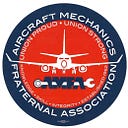Who Are Airlines Really Serving?
It’s been a turbulent few months in the airline industry. The relationship between management and their employees has seemingly never been more at odds. Between the temporary restraining order at American Airlines and the second instance in just four months of mechanics being sued by their own employer (Southwest AMFA members were first, now American is following their lead), there’s been an onslaught of troublesome aviation management reports. And these incidents don’t live in isolation — they drag in travelers, who are ostensibly the beneficiaries of management’s actions.
But, what if the rift between management and their employees is merely a symptom and the true gap lies between what airlines believe travelers want, and what the traveler actually wants?
If asked, we know every stakeholder would claim safety as their top priority. But how deep is a traveler’s desire for safety? Where would they prioritize safety when comparing it to lower fares or fewer delayed flights? What else do travelers value that may have been overlooked by airline management and the travel industry overall? And where in the equation do shareholders — who value profits over all else — factor in?
We decided to ask and find out. With the help of the marketing firm Commerce House, we surveyed 200 travelers, 100 that travel for business and 100 for leisure, who have taken at least two trips in the last 18 months.
Here are a few things we learned:
Travelers care about mechanics
When it comes to the most important aspect of an air trip, “skilled equipment safety mechanics” were ranked first or second 62.5% of the time by travelers, chosen as absolute first 37.4% of the time.
Airlines tout their low-priced fares and on-time performance, but we found those actually taking the flights care much more about the people keeping the planes safe. “Experienced pilots” came in as the second highest ranked aspect with just over 50% in top-two box, and finally, in third, low-priced fares with 29.39% choosing it first or second. On-time performance was ranked first only 8.4% of the time.
No such thing as too safe
82% of travelers agree there is never “safe enough” when it comes to airplane maintenance.
Historically, air travel has never been safer. 2017 was the safest year for commercial airlines on record ever. But then that number slipped in 2018. And with the Air MAX crashes this year, it will continue to drop in 2019.
It’s time for renewed safety standards — before the downward slope becomes a trend in earnest. As airlines seek stronger foreign outsourcing footholds for maintenance work, we need to consider the safety problems this can create down the line. Travelers demand safety, but what have airlines done to assure them they are truly making it a priority?
Varying value
71.56% of those surveyed think mechanics who work on passenger planes earn more than those who work on cargo planes. In fact, 79.62% believe mechanics are paid more than flight attendants and gate agents. Unfortunately, the majority got it wrong.
Even with hard-won new contracts (Southwest AMTs voted in a new contract after nearly seven years of negotiations, and Alaska AMTs are in the process of ratifying their latest agreement in principle), AMTs earn less per hour than each group mentioned. Mechanics working on cargo planes still earn roughly 19% more than those that service passengers.
Corners cut
Though travelers value safety, most expect at least some airlines cut corners on preventative safety measures to ensure more timely departures/arrivals or to lower costs. 31.28% said some of the low-cost carriers do this, 42.65% said very few airlines do this and 14.22% said all airlines do this. Only 11.85% said no airlines cut corners. It’s clear that despite best efforts, not all travelers are buying the airline party line about safety topping every other priority.
We’ve written in the past about whistleblowers and the risks they take to call out safety issues ignored by managers, and more recently, a video surfaced of an American Airlines maintenance supervisor berating a mechanic for writing up a safety concern that delayed a plane by three minutes. And the FAA just reassigned three managers in its office overseeing Southwest.
Airline management goes to great lengths to present the appearance of safety to the public. But what if they took real steps to become its champion and not continue to simply cast off the burden until something goes wrong? If management were listening to their customers, we would not be experiencing this erosion of safety culture and decline in overall safety. Unfortunately, management’s priority seems to be shareholders, and for them, safety is defined in terms of bottom lines and performance growth.
Want the full survey results? Check out the full data set here.
